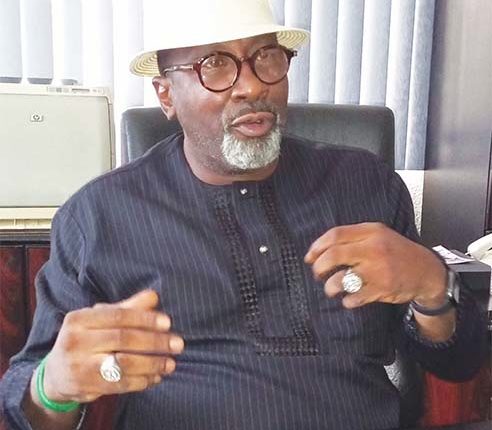Governor Uba Sani is confident that despite the $587 million and N85 billion debts left by El-Rufai in Kaduna, he will find a way to pay the salaries of state employees.
Abayomi Odunowo
In a shocking revelation, Governor Uba Sani of Kaduna State recently disclosed the dire financial situation inherited from his predecessor, Nasir El-Rufai. At a Town Hall Meeting in Kaduna, Sani lamented the massive debt burden left behind, which has left the state with insufficient funds to even pay salaries. According to a report by TribuneTimes, the governor revealed that his administration inherited a whopping $587 million, N85 billion, and 115 contract liabilities from the previous government.
Despite grappling with such a staggering amount of debt, Governor Sani emphasized that he has refrained from borrowing money during his first nine months in office. This restraint is commendable, considering the significant financial constraints he is facing. The governor attributed the state’s financial woes to the debt burden, which is consuming a substantial portion of the state’s Federal Allocation.
One of the key challenges highlighted by Governor Sani is the impact of the exchange rate on the repayment of loans. He noted that due to the depreciation of the Naira against foreign currencies, the state is now required to pay back nearly triple the amount borrowed by the previous administration. This exacerbates the financial strain on the state government, making it even more challenging to meet its obligations.
The consequences of such a dire financial situation are far-reaching. With limited resources available, essential services and infrastructure development are at risk of being severely compromised. The inability to pay salaries on time can have a devastating impact on the livelihoods of state employees and their families, further exacerbating the economic hardship faced by many residents of Kaduna State.
In light of these challenges, Governor Sani must adopt a strategic and sustainable approach to managing the state’s finances. This may involve implementing cost-cutting measures, exploring alternative sources of revenue, and prioritizing essential expenditures to ensure that critical services are not compromised. By taking decisive action to address the debt burden inherited from his predecessor, Governor Sani can steer Kaduna State towards a path of financial stability and sustainable growth.
This revelation of the massive debt burden inherited by Governor Uba Sani highlights the urgent need for prudent financial management in Kaduna State. By addressing the challenges posed by the debt burden and implementing strategic measures to stabilize the state’s finances, Governor Sani can safeguard the welfare of residents and ensure the long-term economic prosperity of the state.
The governor of Kaduna State recently revealed that a significant portion of the state’s federal allocation for the month of March, amounting to N7 billion out of N10 billion, was used to service debt. This left the state with only N3 billion, which falls short of the N5.2 billion needed to cover the monthly wage bill. Despite this challenging financial situation, the governor reassured the people of Kaduna that his administration remains resolute in its commitment to steering the state towards progress and sustainable development.
The governor highlighted the daunting task of managing the substantial debt burden inherited from the previous administration, which amounts to $587 million, N85 billion, and 115 contractual liabilities. Despite these challenges, the current administration has managed to avoid taking on any additional debt, demonstrating its commitment to financial prudence.
The governor outlined key priority areas for the government, including safety and security, housing, education, healthcare, and support for MSMEs. He also emphasized the importance of inclusive development through investments in human capital and initiatives to stimulate the economy.
In terms of security, the state has made progress through the recruitment of 7,000 additional personnel for the revamped state Vigilance Service. Overall, the governor’s message conveys a sense of determination and resilience in the face of financial constraints, underscoring his administration’s commitment to advancing the welfare and development of Kaduna State.
The government of Kaduna State has recently made significant strides in improving various aspects of governance and development in the state. The procurement of over 100 operational vehicles and 100 motorcycles for distribution to Kaduna Vehicle and Driver’s Licensing Services (KADVS) and federal security agencies is a commendable effort to enhance security and transportation services in the state. This investment in infrastructure will undoubtedly contribute to the overall progress and development of Kaduna State.
Furthermore, the governor’s focus on education and skills development is crucial for the future of the state. The establishment of skills and vocational cities, as well as the collaboration with Kuwait to reduce the number of out-of-school children by 200,000, demonstrates a commitment to providing quality education and training opportunities for all residents of Kaduna.
The governor’s vision for Kaduna State as a premier business hub with enjoyable rural living experiences is inspiring. By rebuilding trust, fostering peace, and prioritizing development initiatives, Kaduna State is on the path towards greater prosperity and progress. With collective efforts and strategic investments, Kaduna State has the potential to become a shining example of successful governance and sustainable development.
Media Contacts
Otunba Abdulfalil Abayomi Odunowo
National Chairman AATSG
URL: www.aatsg.org.ng
Tel: +2349053535322
Email: [email protected]



